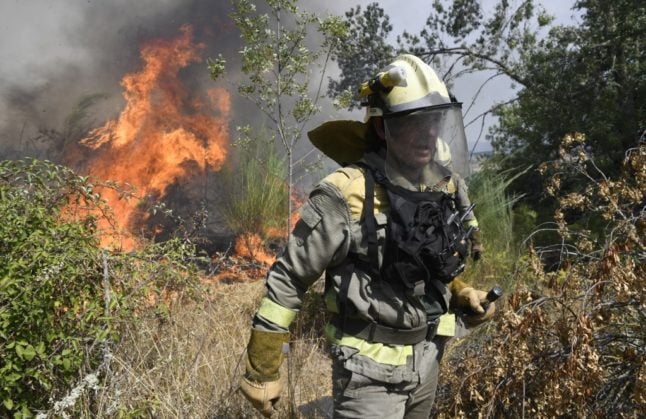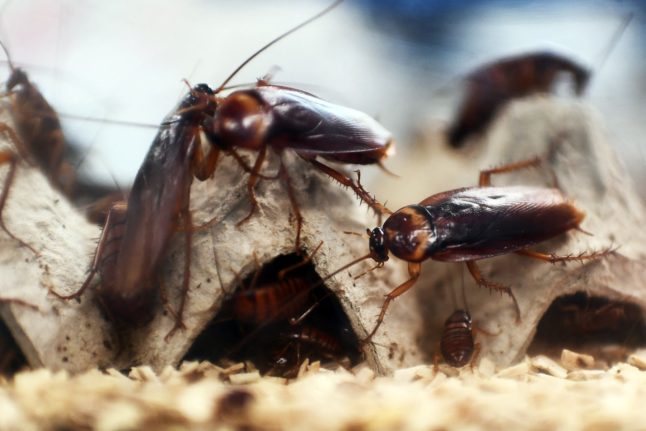Both fires broke out late Saturday, with more than 350 firefighters engaged against the wildfire in the northern Aragon region that has so far devastated an area of 6,000 hectares forcing at least 1,500 people from their homes.
But as they managed to steady the Aragon blaze after successfully preventing it from entering a protected nature reserve, the wildfire in the southeastern Valencia region continued to spread.
READ ALSO: Are Spain’s wildfires a risk to people’s health?
The Aragon emergency services estimate “thousands” of hectares have been destroyed by the fire.
The “rapid spread” of the flames, stoked by winds, is “critical”, the regional president, Javier Lamban, told media.
Spain has faced 388 wildfires since the start of the year, fuelled by scorching temperatures and drought conditions.
The blazes have destroyed 261,930 hectares in Spain this year, more than in any other country in Europe, according to data from the European Forest Fire Information System.
Fires in the South fanned by winds
Hundreds of firefighters backed by 25 planes and helicopters were tackling the flames in the Vall de Ebo, 50 kilometres (30 miles) north of the coastal resort of Benidorm.
So far, more than 6,500 hectares of land have been destroyed and more than 1,200 fled from their homes, with firefighting efforts complicated by strong winds in terrain that is difficult to access, the regional administration said.
“It is a very complex fire and very complicated terrain. We evacuated more than 1,000 people yesterday and last night, we had to evacuate 70 or 80 more homes,” regional emergency chief Jose Maria Angel told Cadena SER radio saying the fire’s perimeter was “progressively increasing”.
Scientists say human-induced climate change is making extreme weather events including heatwaves and droughts more frequent and more intense. They in turn increase the risk of fires, which emit climate heating greenhouse gases.
READ ALSO: What to do and what to avoid if you witness a forest fire in Spain
Fires have blazed in other European countries including France, Greece and Portugal, making 2022 a record year for wildfire activity on the continent.
What causes forest fires?
According to the latest data from the Environmental Prosecutor’s Office, there were at least 179 people investigated and arrested for intentionally starting fires in the first half of 2022.
The most common reasons that have been revealed by the Forest Fire Statistics (EGIF) from the Ministry of Agriculture are to remove scrub and agricultural waste, to regenerate grass for livestock, pyromaniacs, vandalism and to making hunting easier.
READ MORE: Why are there so many forest fires in Spain?
Of course, not all forest fires in Spain are started deliberately. The high temperatures, winds and dry plant material, due to lack of rain in summer, all provide the perfect ingredients for fires across the country.
Declining rural populations in some of Spain’s regions are also causing more fires as fields are abandoned and plant life is left to grow wild. There are also fewer farm animals to help clear the land of scrub.



 Please whitelist us to continue reading.
Please whitelist us to continue reading.
Member comments